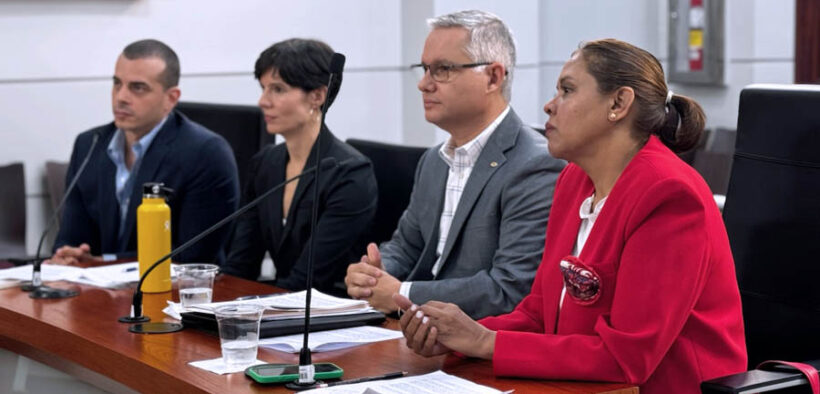Puerto Rico reviews plastic bag ban: Did it really work?

A decade after Puerto Rico approved Act 247-2015, the “Law for the Promotion of Reusable Bags and the Regulation of the Use of Plastic Bags,” lawmakers are examining whether it has achieved environmental goals without unfairly burdening consumers and businesses.
The Senate Committee on Economic Development, Small Business, Banking, Commerce, Insurance and Cooperativism, chaired by Sen. Nitza Morán of the New Progressive Party, held a public hearing under Senate Resolution 112 to review the law’s impact.
“After 10 years of Act 247-2015, we must seriously examine whether public policy has produced the expected effects,” Morán said. “We need to see the full picture: protecting the environment, weighing costs for consumers and ensuring viability for retailers. Our duty is to consider amendments or new strategies that bring a fair and effective balance for Puerto Rico.”
Debate over costs, benefits
Valerie Rodríguez, secretary of the Department of Consumer Affairs, argued that the law has placed a heavy financial burden on shoppers, who now pay for reusable or alternative bags. Many retailers, she said, simply replaced disposable bags with thicker versions that can be just as harmful if not properly discarded.
“The sacrifice has been passed on to the consumer without guaranteeing the ecological effectiveness that justified the measure,” Rodríguez said.
Antonio Ríos, representing the Department of Natural and Environmental Resources, acknowledged a reduction in disposable plastic use but noted continuing complaints about costs and degradability. He pointed to the moratorium on single-use plastics through 2026 as evidence that Puerto Rico’s regulatory framework needs updating.
The Department of Economic Development and Commerce said the law’s success depends on recycling infrastructure for plastic, paper and other materials. The agency recommended deference to the DNER and the Solid Waste Authority in determining whether switching from plastic to paper is environmentally sound.
On behalf of small and medium-sized merchants, Ramón Barquín, president of the United Retailers Association, urged lawmakers to consider biodegradable bags as a more affordable option. He criticized provisions such as mandatory recycling bins in stores, which he said are often used as trash cans.
“The real change must be in fostering a culture of recycling and effective municipal programs, not in imposing ineffective burdens on commerce,” Barquín said. “Puerto Rico needs to protect the environment, but it also needs to protect its retailers.”
Barquín added that legislative inconsistency has created uncertainty for entrepreneurs already facing high operational costs. He called for participatory, data-driven policymaking that includes education campaigns and realistic transition periods.
Data show bag use decline
Manuel Reyes, executive vice president of the Puerto Rico Chamber of Food Marketing, Industry and Distribution, defended the law. He cited data showing an 81% reduction in supermarket plastic bag use between 2015 and 2021, equal to 475 million fewer bags, with some chains reporting declines of up to 98%.
“Act 247 worked,” Reyes said. “The real problem is the government’s lack of recycling infrastructure. Bag tax revenue should fund recycling and education programs.”
He also warned that forcing businesses to distribute free bags would be unconstitutional and unfair to consumers who already reuse them.
While some stakeholders credit the law with sharply reducing plastic bag use, others argue its benefits are weakened by weak recycling systems and unintended costs. Morán stressed the need for a fact-based review.
“It is not the measure itself that has caused change, but the cost deterrent absorbed by consumers and retailers. That is the reality we must evaluate responsibly,” she said.
Senate Resolution 112 will guide the review of Act 247-2015, focusing on compliance with recycling rules in coordination with the Department of Natural and Environmental Resources and assessing possible reforms.




